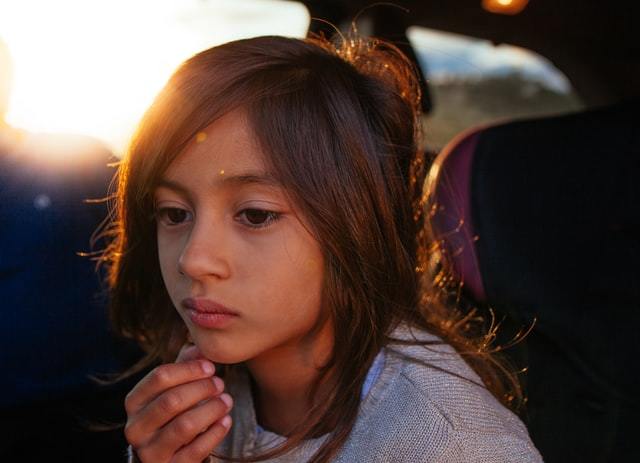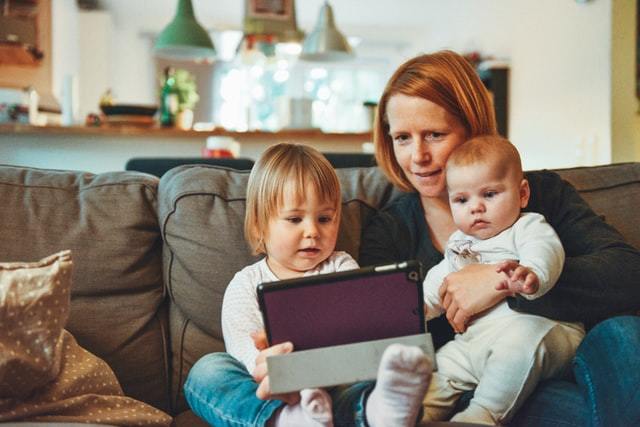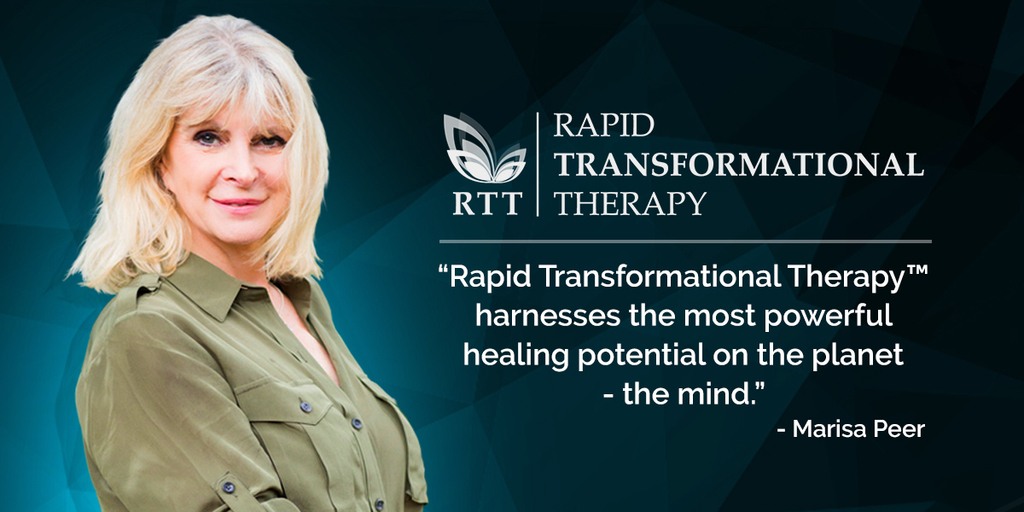Have you ever considered hypnotherapy for your children or heard of others using hypnosis as a means of therapy for their children? For some, it may not be something they would consider for their child; for others, hypnotherapy has helped to transform their child’s behavior and outlook on life.
In this article you will learn all about hypnotherapy for children and teenagers: what is hypnosis, how does it work for children and teenagers and and how it can help transform your child’s life.
Stress and Anxiety in Children
Just like adults, children can have days where they feel anxious or even worse, depressed. It has been observed from as young as eight months, where infants can become clingy and develop something called “separation anxiety” when they are left by their parents or carers. This behavior can continue up to the age of about three years, according to the NHS, and is a common developmental stage that most children go through.
In a previous blog post about stress and anxiety in children, I highlighted that it is common for children of preschool and kindergarten age to suddenly develop many new stressful thoughts and feelings. This occurs due to it being a whole new experience for them, which can be quite daunting.
Often, children of this age start to develop fears and phobias, such as being scared of the dark or spiders. They learn these fears by mimicking people around them, it is not something they are born with.
It is also common for children to experience the feeling of anxiety, as they proceed through school and get to their teenage years. This is when the worry and stress over exams can have a negative impact on their behavior, as well as the physical changes they have to go through when they hit puberty.
Just like adults, if children are experiencing stress and anxiety, it may cause them to act out of character and become withdrawn, angry, sad, and even, in the very worst cases, suicidal. Hypnotherapy for children and teenagers is a safe and effective option that could help them get to the root cause of the problem and overcome it.
What is Hypnosis?

The NHS describes the act of hypnosis as the following:
“There are different types of hypnotherapy, and different ways of hypnotizing someone. First, you will usually have a chat with your therapist to discuss what you hope to achieve and agree what methods your therapist will use.
After this, the hypnotherapist may:
- Lead you into a deeply relaxed state
- Use your agreed methods to help you towards your goals―for example, suggesting that you do not want to carry out a certain habit
- Gradually bring you out of the trance
- You are fully in control when under hypnosis and do not have to take on the therapist’s suggestions if you do not want to.
- If necessary, you can bring yourself out of the hypnotic state.
Hypnosis does not work if you do not want to be hypnotized.”
Marisa Peer has been a hypnotherapist for over 30 years, and has developed her own revolutionary therapy called Rapid Transformational Therapy™(RTT). This powerful method is a complete solution-based treatment, to bring together the most beneficial principles from neuroscience, NLP, CBT, hypnotherapy and psychotherapy.
Marisa shares her experience of how the mind works and how we can reprogram our minds to achieve lasting transformational change in your life. You can read more about Marisa’s Rules of the Mind in her blog post.
Is Hypnotherapy for Children and Teenagers a Good Option?
When you are a child, you have very simple needs: “I need you to love me, I need you to protect me, I need to feel safe, I need you to feed me, I need you to make me feel good about myself.”
Most of the need is to feel safe and loved and valid. If those needs are not met, if I go through life thinking no one loves me, I am not safe, I am not smart, the world is dangerous, I am going to become a very needy adult, always needing praise and reassurance.
When children have unmet needs, they turn into adults who have unmet needs.
If you can meet the needs of a child and allow them to feel safe, valid, significant, lovable, and worthy, you actually eliminate all the adults needing therapy. You make the world a better place. In fact, as an adult, you can meet most of your own needs but we tend to hold onto past hurts and believe them to be universally true, without question.
Children who are happy do not bully, children who are happy do not act out, children who are happy are not mean. They do not grow up into teenagers who shoplift or take drugs. It is really important to get to these children at a young age and to meet their needs.
Tagging a belief

Before the age of four, children do not have logic, they just have feelings. Something happens and they feel it, then something else happens and they do what I call tagging, where the child tags themself with a belief: “It will always be like this. It will be like this forever. It will be like this for the rest of my life.”
For example: “We do not have any money, it will always be this way. I do not have love. It will be this way forever and ever. I get bullied and there is nothing I can do about it.” Children put on a tag, “It will always be this way. I cannot do anything about it” because, after all, a small child can often feel powerless to do anything about it. In RTT, using hypnotherapy for children and teenagers, we remove the tag, we show them the power they have, we believe in them and empower them.
Most children are very open-minded and tend to have fewer barriers in stopping them from becoming who or what they want to be. Because children have such a vivid imagination and are so receptive to change, using hypnotherapy for children and teenagrs during this critical period of development is extremely effective and rewarding.
How Does Hypnotherapy for Children and Teenagers Work?
The BBC news reported on a study which found that hypnotherapy for children and teenagers helped to reduce anxiety and feelings of helplessness in students: “The effects of hypnotherapy were found to be greater than those of more traditional relaxation techniques. The research, conducted at Hampshire Hypnotherapy Centre, was revealed to the British Psychological Society.
David Byron, a senior specialist educational psychologist for Hampshire County Council studied 10 pupils, aged 11 to 16. The students received psychological treatment in sessions with their parents during which they set things they wanted to change about their lives. They were then taught how to self-hypnotize and work towards these targets. Mr. Byron said: “It seems to empower the students to change their lives and it is not me doing it, it is them.”
Mr. Byron said hypnotherapy could also be useful to help with a number of other treatments, and that he would like to see the Child and Adolescent Mental Health Services nationwide employing people to offer a hypnotherapy service to patients. In summary of his opinion on hypnotherapy for children and teenagers, he said: “There is no doubt it has a tremendous amount to offer.””
When Marisa Peer works with children, she fills them up with self-belief and empowers them. They often come in with issues like nail biting, bedwetting, fear of school, fear of monsters, thumb sucking, not being able to form words, being jealous of their brother or sister.
With little kids, she uses puppets to hypnotise them. She take them back and they watch Cinderella or Frozen or something they love, and they are in it. Sessions for little children aim to last no longer than 20 minutes. For bedwetting, has the puppet do magic, so when their tummy is full of wee, it sends a magic signal and they wake up and go to the bathroom.
If they believe it to be true, it becomes true.
For children who are bullied and children who are the bully, it can be extraordinary to do this work. For older kids, for angry teenagers, for those who feel unattractive, for those getting bullied on social media, and even for suicidal teens, RTT® can be effectve at bringing powerful, positive change.
What is the role, function and purpose of an issue?

In RTT, we look for the role, function and purpose of an illness. With very small children, say five, they come in with eczema or asthma or dermatitis and Marisa says to them, “Darling, this is going to be a very silly, funny question. I want to ask you something. If the eczema is your friend, if it wanted to help you, how could it help you?”
They share things like: “Well, every night I have to stand like that with my arms out, and mommy has to put on cream and wet bandages. When she is putting on all the cream and rubbing it in and putting the bandages on, she is not putting any cream on that other baby.”
Of course, we understand that little kid at five watched mommy massaging oil on a new baby. He said, “Mommy, can I have that?” and she probably said “No, the baby needs it, you do not need it. I am busy with the baby. You had your turn when you were a baby, now it is the baby’s turn.” That child thinks “I want Mommy to put cream on me.”
When you ask for something, the mind’s job is to deliver it.
Another little kid suffered from chronic headaches. It is very unusual for a child to get headaches like that. Marisa asked him the same question, if the headache was your friend…
He said, “When I get headaches, Mommy and Daddy stop fighting. We lie on the couch and they stroke my head until the headache goes away.” Now, you do not have to be Einstein to work out what that child was thinking: “I want them to stop fighting, I need them to stop fighting. I have got to find a way for them to stop fighting.” Then suddenly, when he has headaches, his daddy and mommy do not fight.
It is such a wonderful thing to uncover the beliefs we pick up as children and to be able to do something about it. You can have this amazing job where children come in and you can help them meet their unmet needs, so they do not carry into adulthood.
Case Study

Rapid Transformational Therapy™ (RTT™) and hypnotherapy for children is extraordinary, as it is all about empowering the child, giving them unshakable belief in themselves and then seeing the transformation take place. It is a wonderful tool for parents, teachers or any therapist to learn, as it can make such a difference to a child’s life.
The following story is taken from Marisa Peer’s practice of working using RTT when working with children.
Marisa worked with a teenage boy who was the angriest kid she have ever met in her entire life. He said, “If you get this wrong, I am going to sue you and take your house off you.” She replied, “You are a really hurt kid, are not you?” Because behind anger is hurt. So instead of getting offended, I just said, “Let’s talk about how you are hurt.”
His parents divorced when he was very young, probably three months old. He went to live with his very elderly grandparents, did not see his mom, did not see his dad. They both went off around the world, got married to someone else, had more kids, and never saw him.
After he mentioned his dad, Marisa asked him to imagine the situation where he had a lovely dad and think about what his dad would tell him – “If you had the best dad in the world, what would he say to you?”
Everyone knows what a good dad would say. They would say “I love you, I am proud of you. I am so lucky that you are my kid. It is such an honour and a joy to be your parent. You are the best thing that ever happened to me. You are smart, you are funny, you are kind, you are interesting.”
Marisa asked the boy to say these things to himself. So he began to say “I am proud of you, you are a great son, you are an amazing kid, I am so glad you are my son.” Straight away he went from this sullen, angry, scowling boy to suddenly sitting up and smiling, his whole features softened.
The truth is, when you say things like “You are amazing, you are fantastic, you are lovable,” your mind does not go “Who is saying that? Where is that coming from?” Your mind just lets it in.
Your mind believes what you tell it
Hypnotherapy Recordings

Marisa Peer agrees how powerful a recording of hypnotherapy for children and teenagers can be when you play it daily. That is why she has created a range of instant downloadable audios, which you can browse by topic and discover her transformational words, compelling voice and rules of the mind.
The following hypnotherapy downloads are suitable for children and teenagers:
Pass Your Exams with Confidence and Skill
This hypnosis audio allows you to pass your exams with confidence and skill. Feeling calm, composed and focused, your body is relaxed, your mind is alert and you remember everything you have learned, studied or revised. Learn how to remember the correct answers as you go through your exams, improve your learning and grades.
Pass Your Driving Test with Ease
Just listen to this hypnosis download to learn the skills to pass your driving test with ease—today!

Hypnotherapy Books
Marisa is also an accomplished author of five best-selling books, translated into a dozen languages. She has been a contributor and columnist to publications including Closer, Men’s Fitness, and major Sunday newspapers, plus frequently appears as an expert on television networks all over the world, including the BBC and NBC. Marisa’s impassioned and effective approach to changing people’s lives from within, has positioned her as a leading motivational speaker on a global stage, speaking all over the world, from TEDx and Conde Nast to the Royal Society of Medicine.
The below hypnotherapy books are suitable for teenagers and adults:
Ultimate Confidence: The Secrets to Feeling Great About Yourself Every Day
There is so much more to confidence than being outgoing, and self-esteem has a huge impact on both your happiness and what you are able to achieve in life. Written in the highly engaging style she is renowned for, Marisa’s book speaks to you on an extremely personal level and tailors her proven methods in establishing confidence to your unique needs.
I Am Enough: Mark Your Mirror and Change Your Life
You can use the power of stating that you are enough, that you always have been and always will be, to achieve success in every key area of your life. When you say it, think it and believe it and make it an automatic and regular part of your life you can expect to see wonderful improvements in your relationships, in your career and in how you feel about yourself. This book is designed to help you massively increase your own sense of self-worth so that you like yourself, feel good about yourself and believe in yourself. Whilst becoming permanently free from self-sabotage and self-destructive thoughts and behaviors.
Becoming a Hypnotherapist
When you go though a difficult times, sometimes you need one person to believe in you, just one. For many people, it is their therapist. For the angry kid, or the troubled teen, the therapist can be the person who believes in them and it makes all the difference.
Have you seen the movie, Dead Poets Society, where they had one teacher, one person who believed in them, or Good Will Hunting, where it was the therapist? If you are thinking of becoming a therapist, you could be the one person that turns around a troubled kid, who works with a child to overcome their fears, phobias, eczema or dermatitis. You could transform a whole family, a school and even a community. You can help shape future generations.
Many of my RTT graduates who are now working with young people say it is the most rewarding thing in the entire world. We have a lot of grads saying, “Wow, this is amazing. Working with children is incredible.” You do not need any background, as we teach you everything you need to know. You just need to have an interest. We have many ex-teachers on our course. We have doctors who I have trained that say: “It is so interesting. People come in front of you and talk about their problems. They all go back to the unmet needs of children.”
We kind of watch miracles take place all the time with RTT and hypnotherapy for children and teenagers, it is like watching neuroplasticity at work. You can take old outdated negative beliefs and rewire them with new empowering beliefs that can transform lives.
You can do what Marisa does, you can get the results she gets. You can train with Marisa online or live and learn RTT technique that will help you improve lives – the lives of children, your family and your own. When you are able to help people in such a profound life-changing way, you can enjoy a rewarding and fulfilling career full of meaning and purpose every day.
When you know how to help a child overcome their challenges, when you meet their needs to feel safe, valid, significant, lovable, and worthy, you are not just changing one life – you are making the world a better place, one person at a time.
To learn more how you can become a ceritified therapist to help children and adults transform their lives, sign up for a free RTT masterclass.





